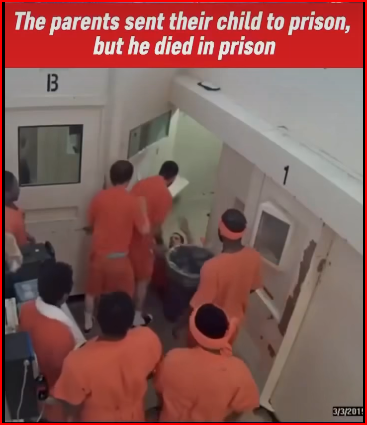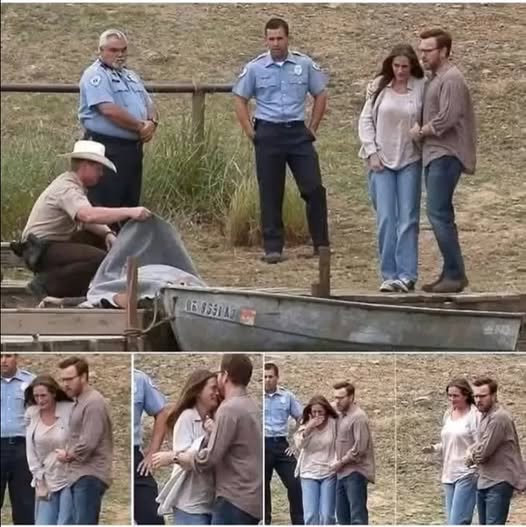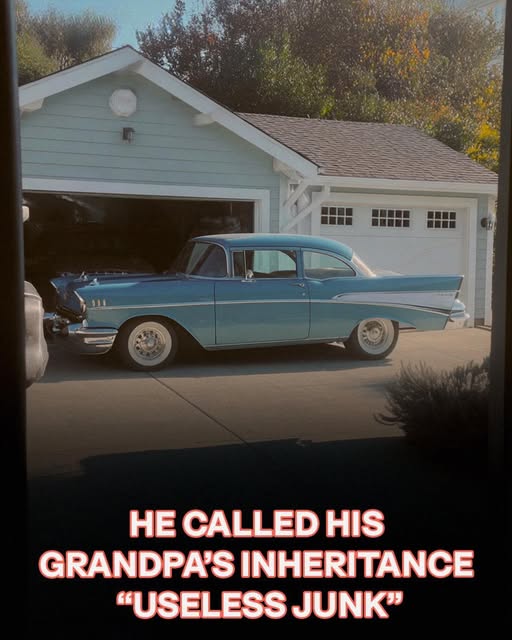The Parker household had become too quiet — not the kind of quiet one associates with rest, peace, or comfort, but the heavy silence of sorrow, the type that draped itself over every corner of the house like an unwelcome shadow.
Sarah Parker sat slouched in the nursery doorway, staring blankly at the crib that held her infant son, Noah. Her hands wrapped tightly around a mug of tea that had long gone cold. She hadn’t taken a sip in hours; the drink was more of an anchor than a comfort.
Noah had been born two months too early. The doctors had tried to prepare Sarah and her husband, Michael, for what that meant — complications, delays, maybe disabilities. But nothing could have prepared them for the words that eventually became routine, repeated by white-coated professionals until they lost all meaning.
“He may never move.”
“He shows no responses to external stimuli.”
“Prepare yourselves for the possibility of a vegetative state.”
Every sentence was delivered clinically, devoid of emotion, as though detachment softened the devastating truth. But for Sarah, the words pierced deeper each time. The woman who once believed hope was eternal no longer cried; tears felt wasted on something the doctors assured them was impossible.
The Breaking of Hope
Sarah wasn’t the only one carrying despair. Michael, once the optimist of the pair, now wore his grief like a second skin. He tried to distract himself with work, house repairs, and endless errands, but the pain of walking into the nursery — seeing his son unmoving, expressionless, silent — was too much.
The house itself seemed to echo their emotional collapse. Laughter, once frequent, was gone. Music no longer played from Sarah’s old record player. Friends stopped visiting, unable to navigate the delicate balance between offering sympathy and avoiding pity.
One night, Sarah muttered the words she never thought she would say aloud. “Maybe… maybe it’s better if…” She didn’t finish, but Michael understood. The unspoken thought — that maybe letting go would hurt less — sat between them like a ghost neither dared to confront.
The Arrival of Max
It was during this deep valley of despair that something unexpected happened. Sarah’s younger sister, Emily, showed up at their doorstep with a box in her arms. Inside was a golden retriever puppy, barely eight weeks old, with fur so soft it looked like spun gold and eyes that seemed too wise for such a young creature.
“I thought maybe he could bring some life into the house,” Emily explained softly. “I know it’s not a solution, but… maybe it’s something.”
At first, Sarah resisted. A puppy meant responsibility — feeding, cleaning, training — and responsibility was the last thing she had energy for. But when Max, as Emily called him, licked Sarah’s hand and wagged his tiny tail as if to say, I know what you need even if you don’t, something stirred inside her, something she hadn’t felt in months: a faint spark of warmth.
Michael wasn’t convinced either, but he saw the flicker of light in Sarah’s eyes and agreed. “Okay,” he said quietly. “Let’s give him a chance.”
The Night Everything Changed
It was two weeks later, in the stillness of night, when the miracle began.
Sarah had been sitting again in the nursery doorway, unable to sleep, staring at Noah’s fragile body in the crib. His chest rose and fell mechanically with the aid of oxygen tubes, but otherwise, he lay completely still — the same haunting stillness that had become their reality.
A sound broke the silence. A soft thump against the hallway floor. Sarah turned her head. Standing at the doorway was Max, his floppy ears twitching, his dark eyes watchful.
“Max,” Sarah whispered, her voice barely audible. “Not now.”
But Max didn’t retreat. With surprising determination for his size, he padded quietly into the room. Before Sarah could stop him, he leapt gently into the crib.
Sarah gasped, ready to pull him out, but Michael appeared behind her and placed a hand on her shoulder. “Let him stay,” he said, his voice low, calm, and strangely certain.
Max didn’t bark, didn’t paw, didn’t lick Noah’s face. Instead, he curled up beside the unmoving child, resting his tiny head near Noah’s hand as though he understood everything without needing words.
And then — it happened.
A twitch.
Sarah’s eyes widened. Noah’s fingers — unmoving for months — flickered. At first, she thought it was her imagination. But then it came again, small but deliberate, the faintest sign of life breaking through impossibility.
“Michael,” she whispered urgently, her voice shaking. “Did you see that?”
Michael leaned forward, his own breath catching in his chest. “That’s not… it can’t be…”
But it was.
The Unexplainable Connection
From that night onward, something changed in Noah. Every evening, when Max curled beside him, Noah’s tiny hands twitched, his lips quivered, and his legs moved ever so slightly beneath the blankets.
The doctors dismissed it at first. “Random muscle spasms,” they explained clinically, unwilling to credit anything outside the realm of science. But Sarah and Michael knew better. These weren’t random twitches; they were responses. They happened when Max was present — only when Max was present.
Sarah began documenting everything: every movement, every sound, every flicker of Noah’s awakening. Slowly, she pieced together the undeniable truth — that this puppy, this small creature with no medical training, was reaching their son in ways professionals couldn’t.
Max had become more than a pet. He was a healer, a companion, and perhaps even a miracle worker.
The Slow Road Back
Progress was not immediate, nor was it simple. There were setbacks — days when Noah lay still again, days when the twitching stopped, days when despair crept back in. But each time, Max refused to give up. He climbed into the crib, nuzzled close, and stayed until Noah responded.
Weeks turned into months. Noah’s movements grew stronger. His once silent cries became faint sounds. His still eyes began to follow light, then faces, then the golden blur of Max bounding across the room.
For Sarah and Michael, each small milestone felt like witnessing the impossible. The first time Noah grasped Max’s ear, Sarah broke into tears that tasted different this time — not bitter, but sweet, salty tears of gratitude.
Doctors could no longer dismiss what they saw. “We can’t explain it,” one admitted finally. “But… whatever is happening, don’t stop it.”
The Family Reborn
The Parker household no longer carried the weight of silence. Laughter returned, music played again, and the nursery transformed from a place of sorrow into a sanctuary of miracles.
Max had not only awakened Noah — he had awakened the entire family. He reminded them that even in the darkest nights, light could find its way in.
For Sarah, the lesson was profound. She had been ready to let go of hope, to believe in the permanence of despair. But her son, with the help of a golden retriever, proved that hope could be reborn when least expected.
For Michael, the miracle restored his faith — not only in his son but in love, in resilience, in the mysterious bond between humans and animals that science still struggles to define.
And for Noah — the child once written off by medical charts and predictions — life had just begun.
A Lesson Beyond One Family
The story of Noah and Max spread quietly at first, whispered among relatives and friends. But soon, neighbors heard, then communities, then strangers who stumbled upon Sarah’s blog posts documenting the journey.
Emails poured in from parents of children facing similar struggles. Letters arrived from people who had lost hope but found courage through Noah’s story.
Animal therapists, inspired by Max, launched new studies on the healing power of pets in pediatric care. Researchers began exploring not just therapy dogs but everyday companions as catalysts for emotional and even physical healing.
The Parker family never sought fame, but their story became a beacon — proof that miracles sometimes wear fur, wag tails, and enter our lives when we least expect them.
Conclusion: The Miracle We Can’t Measure
Noah’s recovery is ongoing. Some days are harder than others, but the boy who was once expected never to move now reaches for his puppy, giggles at his antics, and grips life with both hands.
Sarah no longer sits in the nursery doorway with cold tea and lifeless hope. Instead, she chases a toddler’s laughter down the hall, Max bounding happily beside him.
When asked how she explains what happened, Sarah smiles and says simply:
“Doctors said it wasn’t possible. But Max believed otherwise. And so did Noah.”
Perhaps that is the lesson for all of us — that miracles aren’t always thunderous or dramatic. Sometimes, they come quietly, on four little paws, curling beside us until hope wakes up again.



